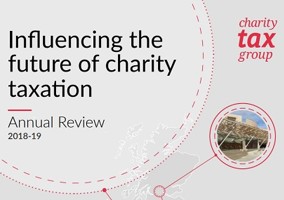Donation and grant income will not be counted as part of turnover under new rules regarding off-payroll workers, HMRC has confirmed.
However, the Charity Tax Group (CTG) has warned that charities need to be aware of the rule change and prepare now as it could still increase costs.
The IR35 rules are designed to ensure that an individual employed through an intermediary, which will often be a personal service company, is not a direct employee in all but name. This is so that the right amount of tax and National Insurance Contributions are paid and that such an arrangement is not being used just to reduce tax liabilities.
From April 2020, it will become the responsibility of the employer to deem whether an individual is eligible to use a personal service company or should be on the payroll as an employee. This applies to all companies, including charities, that meet two of three thresholds over two accounting periods.
If an off-payroll worker is deemed to be acting like an employee then the charity will become responsible for paying PAYE and Class 1 NI on the net value of the invoice and also have to record the details on their payroll system. The employer must also inform the intermediary of its decision. The intermediary has the right to appeal the decision.
The thresholds that organisations must meet to fall under the new rules are an annual turnover of £10.2m or more, a balance sheet total of more than £5.1m and having over 50 employees.
In response to HMRC consultations on the issue, CTG had argued that the income test should not include donations and grant income. HMRC has now confirmed that this will be the case, meaning fewer charities will be caught by the legislation.
In an email to CTG, which is quoted on CTG’s website, HMRC says the definition of turnover for the IR35 rules will be the same as the definition used in the Companies Act, 2006, which reflects “trading income from which an organisation would report as a profit or a loss, or income and expenditure.”
“HMRC has previously published guidance for senior accounting officers on what constitutes ‘turnover’ in relation to the Companies Act, 2006 which you can find here,” the email, which was sent by the IPD Employment Status and Intermediaries Policy team on 4 November 2019, says. “This guidance advises that ‘corporates which are charities almost certainly receive donations and other voluntary income which does not derive from the provision of goods and services. This would not therefore constitute turnover.’.”
Increased costs
However, CTG is urging charities to prepare now, even if this clarification means they do not fall under the turnover threshold, as they may still meet the other two thresholds. CTG also emphasised that the rules could increase costs beyond the potential increased tax liability itself, due to the administrative work involved.
Richard Bray, vice chairman at CTG and finance regulatory & taxes manager at Cancer Research UK, said: “It is also important to appreciate that these changes are not about tax compliance alone but could result in significant increases in a charity’s cost base.”
For example, the new rules could mean a charity needs to spend to update and improve its systems.
“It would be wise for affected charities to get in touch with their payroll system provider,” said Bray. “What are they doing to ensure that a charity’s systems will be ready for the change and how do they expect this to operate?
“A further complication is that the personal service company is likely to continue issuing invoices as it has before. These will generally include VAT. So, changes will be required to accounts payable systems which will presumably pay the VAT whilst the net value of the invoice will, in effect, be processed by your payroll system. How will this work?
“My plea is simply that we all make the most of the time given to us to plan for the impact of off payroll working.”
|
Related articles












